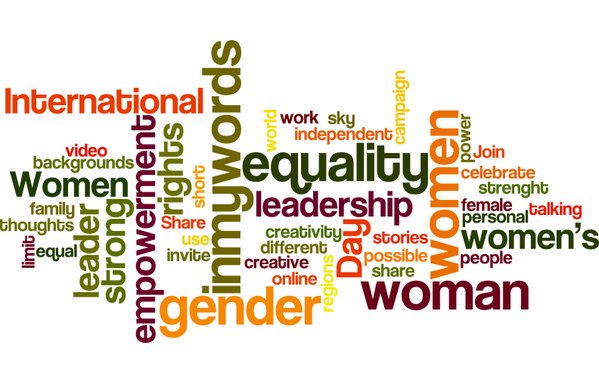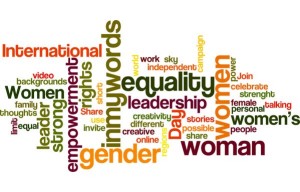8th March 2016 London, UK
Women’s Day: what “empowerment” means

Just in case you missed it, the UK’s theme for International Women’s Day 2016 is “Leadership and Empowerment”. I think I’m alright on defining leadership (something to do with steering a boat, right?) but when I sat down to draft a pithy piece on empowerment, I hit a blank – rare, for me.
Because what actually is empowerment?
I asked some female colleagues how they would define it, in one word.
I got a variety of responses. Predictably, almost everyone struggled to give me a one-word definition (I couldn’t meet my own challenge either). But these were the nouns that my little straw poll nudged forward: empowerment, then, is about:
• Value – confidence in one’s own worth
• Self-direction (informed free-will)
• Freedom
• Opportunity
• Sistership – women fighting for women’s causes
• Backing (confidence in me/my judgement)
• Ownership: of personal space, path, choices.
Isn’t that fascinating? I’m sure there are many other definitions – I asked only a handful of people (and only women: would a male answer be different?) But the two things that came through strongly, even from that small sample, were firstly the feeling of ownership – “freedom to”; and secondly the desire for support, which perhaps gives the confidence to attain that “freedom to.”
Which chimes quite well with an official definition from the Oxford Dictionary:

There may be a difference between empowerment in a professional setting to the empowerment that you would want to feel at home, or in relationships – I don’t know about you, but I probably present a different face (washed, hair combed) at work than I do at home, and act differently, so the methods and objectives are not the same.
But whatever the situation, I know that empowerment is just as active as it is (rightfully) passive: I must find the tools I need to empower myself and others around me, just as much as I should be able to expect those tools/flexibility to be made available.
And therein, for me, is the link to leadership: both of ourselves, and of others.
Of ourselves, because it’s up to us to take stock. Where am I, who I am, and (without the horror of a ten-year-plan, as some of my frighteningly successful friends have) are both of those what I want, or wanted before? If not, why not, and what can I do about it?
And of others, because leadership is about sharing: opportunities, experience, feedback, a sounding board, and a good beer (necessary to recover from those exhausting existential questions above).
Granted: that all feels nice and fuzzy, from here. France is a country where laws and (in general) customs protect women’s rights and independence: think voting, that bank account you’re allowed, that passport, that driving licence, that law making discrimination or violence illegal, those quotas for political or business responsibilities. That is empowerment we take for granted, mainly, and which so many women across the world simply do not have.

Which leads me to my last point. To empower and be empowered, there is some give and take. Abraham Lincoln said: the sheep and the wolf are not agreed upon the definition of liberty. To illustrate my point, look at the difficulty in finding a French translation of “empowerment”: even gender equality specialists can’t find one they’re happy with, ranging from “autonomy” to “emancipation” to “self-fulfillment”. Lost in translation: yes, but also lost in interpretation.
The fact that empowerment, or its consequences, are not necessarily the same thing to everyone is probably what makes it so difficult to achieve: full circle, then, to the necessity of leadership.
Or, as one colleague suggested, entirely ignoring the one-word limit: “inspiring others with the confidence to do something”.
That sounds good. And if maybe I’m turning native with all this philosophical musing, hopefully it’s a question of: I think, therefore I am.